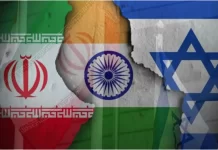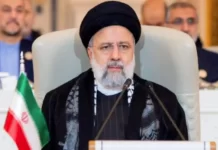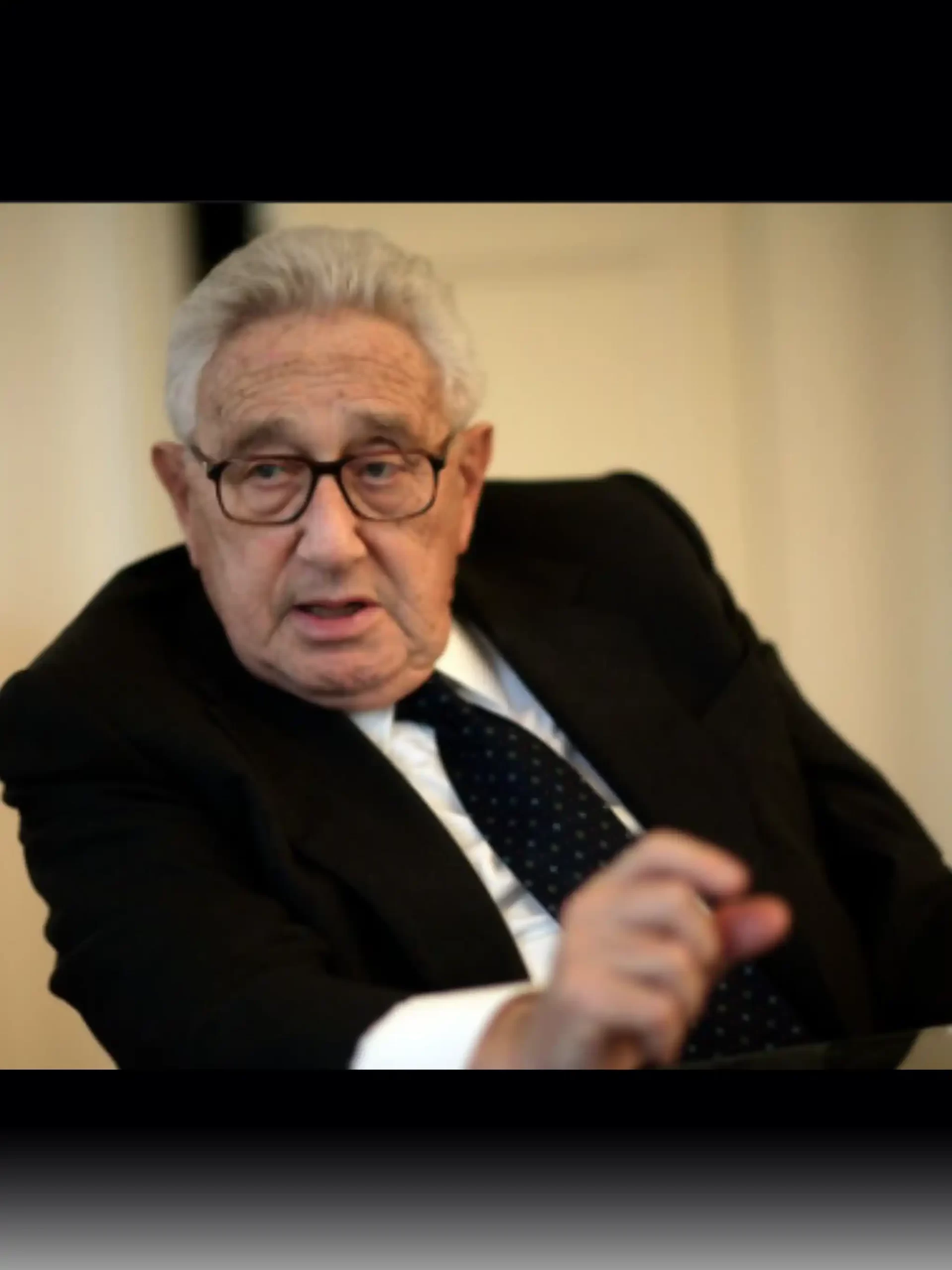Henry Kissinger: A Legacy of Diplomacy and Controversy
Introduction
In a significant loss to the realm of foreign policy, Henry Kissinger, an influential figure for over half a century, passed away at the age of 100. This article delves into the legacy left behind by this iconic diplomat, exploring his achievements, controversies, and lasting impact on global relations.
Early Life and Background
1. Escaping Nazi Germany
Henry Kissinger’s journey began as a teenage refugee escaping Nazi Germany, shaping his worldview and influencing his later diplomatic pursuits.
2. Military Service and Ahlem Liberation
Sent to Germany during World War II, Kissinger’s service in the U.S. Army, including the liberation of a concentration camp in Ahlem, left an indelible mark on his approach to international relations.
Academic Pursuits and Entry into Politics
3. Harvard Years and “The Meaning of History”
Post-military service, Kissinger’s academic endeavors at Harvard, including his thesis on “The Meaning of History,” paved the way for his foray into politics.
4. Nixon’s National Security Adviser
Kissinger’s hawkish views and scholarly writings attracted the attention of President Richard Nixon, leading to his appointment as the national security adviser.
Diplomacy and the China Opening
5. Nixon’s Historic Visit to China
Kissinger’s strategic thinking played a pivotal role in orchestrating Nixon’s groundbreaking visit to China, altering the geopolitical landscape.
6. Détente with Soviet Union
Simultaneously engaging with Soviet leaders, Kissinger’s diplomacy ushered in a period of détente, arms control agreements, and eased tensions between the U.S. and the Soviet Union.
Challenges and Criticisms
7. Vietnam Negotiations and Nobel Peace Prize
Despite successes, Kissinger’s involvement in Vietnam negotiations faced challenges, and the Nobel Peace Prize he received with Le Duc Tho did not end the war.
8. Watergate Scandal and Increased Influence
As the Watergate scandal unfolded, Kissinger’s role expanded, becoming de facto deputy president for foreign policy under Nixon’s administration.
Guiding Principles and Criticisms
9. Realist Tradition in Foreign Policy
Kissinger’s commitment to U.S. national interests over idealistic goals led to criticism, especially regarding his approach to human rights and democracy.
10. Controversial Policy Decisions
His support for bombing campaigns and alliances with authoritarian regimes drew accusations of war crimes, prompting scrutiny of his actions.
Later Years and Global Perspectives
11. Post-Nixon Era and Continuing Influence
Even after leaving the direct service of U.S. presidents, Kissinger’s influence persisted, making him a sought-after voice on international affairs.
12. Engagement with Global Leaders
Kissinger’s “shuttle diplomacy” and direct engagement with world leaders showcased his dedication to resolving complex global issues.
Legacy and Criticisms
13. Lasting Impact on U.S. Foreign Relations
Kissinger’s imprint on U.S. foreign relations endures, with his realist approach shaping policies for decades.
14. Criticisms and Reflections
Despite his accomplishments, Kissinger faced persistent criticisms, raising questions about the morality of his choices on the global stage.
Conclusion
In the final analysis, Henry Kissinger’s legacy is one of nuanced complexity, blending diplomatic prowess with controversy. His impact on U.S. foreign policy remains undeniable, leaving a lasting imprint on the world stage.
Frequently Asked Questions (FAQs)
Q1: How did Kissinger’s early life experiences shape his approach to diplomacy?
A: Kissinger’s escape from Nazi Germany and military service influenced his pragmatic and realist approach to foreign policy.
Q2: What were the key diplomatic achievements during Kissinger’s tenure as national security adviser?
A: Nixon’s visit to China and the détente with the Soviet Union were pivotal diplomatic successes during Kissinger’s tenure.
Q3: How did criticisms of Kissinger’s policies evolve over time?
A: Kissinger faced criticisms for his support of controversial policies, with accusations of war crimes lingering throughout his career.
Q4: What is Kissinger’s lasting impact on U.S. foreign relations?
A: Kissinger’s realist tradition continues to influence U.S. foreign policy, shaping the nation’s approach to global affairs.
Q5: How did Kissinger’s perspective on global events evolve in his later years?
A: In his later years, Kissinger expressed concerns about U.S. isolationism and emphasized the importance of global engagement.
Henry Kissinger: Architect of Global Diplomacy
1. The Maestro of Foreign Policy
Unraveling the enigma of Henry Kissinger, a century-long virtuoso who orchestrated the symphony of global diplomacy.
2. Behind-the-Scenes Titan
Delve into Kissinger’s pivotal role shaping U.S. relations with the Soviet Union, China, and the Arab nations.
3. From Nazi Persecution to Global Celebrity
Witness Kissinger’s journey from a teenage refugee fleeing Nazi Germany to becoming a global celebrity and statesman.
4. Détente Diplomacy
Explore how Kissinger’s diplomacy reshaped the Cold War era, fostering détente, dialogue, and arms control agreements.
5. Nixon, China, and Strategic Brilliance
Unearth the strategic brilliance behind Kissinger’s orchestration of Nixon’s historic visit to China, altering geopolitical dynamics.
6. Kissinger’s Nobel Prize
Examine the complexities of Kissinger winning the Nobel Peace Prize for his role in Vietnam, despite the war’s continuation.
7. Realism in Foreign Policy
Understand Kissinger’s realist approach, prioritizing U.S. national interests over idealistic goals like democracy and human rights.
8. Legacy Beyond Politics
Grasp the enduring impact of Kissinger’s legacy on U.S. superpower relations, transcending political shifts.
9. Criticisms and Controversies
Navigate through the criticisms, controversies, and accusations of war crimes that shadowed Kissinger’s illustrious career.
10. The Lasting Influence
Reflect on Kissinger’s enduring influence on international affairs, his views on Trump’s “America First” policy, and his concerns for the future.
Henry Kissinger, Global Diplomacy, Cold War, Nixon, Nobel Peace Prize, Realism, Legacy, Controversies, U.S. Foreign Policy, America First
Explore the profound legacy of Henry Kissinger, a maestro of global diplomacy. Uncover the strategic brilliance, controversies, and lasting influence that shaped U.S. foreign policy. A compelling journey through the life of a statesman.
- Henry Kissinger, Foreign Policy Maestro
- Kissinger and Nixon during Vietnam War
- Legacy of Nobel Peace Prize
- Realism in U.S. Foreign Policy
- Kissinger’s Impact on Cold War
- Controversies and Criticisms
- America First Policy Critique
- Kissinger’s Lasting Influence on Global Relations


















